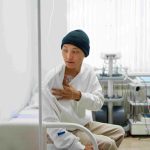I have seen about 4,000 patients since 2013. During their cancer journeys, I usually meet each patient once a week or once a month. Some required so much support that I navigated them even three to six times a day.
Patients require the guidance and assistance of a navigator at different junctions of their journey. During my time as a navigator, I discovered that these patients also taught and empowered me. Each encounter was a learning experience, filled with unique human stories.
Patient 1: Healing Family Bonds
The following case is a long , complicated and filled with many issues. Patient in her late 50’s,date was fixed for a mastectomy .She was a retired accounts clerk from an accounting firm.
The patient was not on speaking terms with any family members except her niece. Niece is a nurse working in Muar recently divorced living with a young daughter. Niece managed to persuade her mother to provide their second home to the patient -rent free. The patient lived there with her unmarried sister but they were not on talking terms.
Background on why the patient’s siblings are not in talking terms with patient:
Patient was the sole care giver for her elderly parents. One day, the patient came home stressed and worried about retirement. An argument broke out between her and her mother. In a fit of rage, the patient slapped her mum. Her brother walked in during the incident and took the parents away to live with him. From that day, all her siblings stopped talking to her.
She regretted her action deeply and apologized many times, but no one forgave her.
Rebuilding Communication
Suddenly, I received a call from the patient at about 5:30 a.m. on the day of her mastectomy. She was frightened and needed support. By 6:15 a.m., I was at the hospital, staying with her until the operating theatre room doors closed behind her.
Slowly, she recovered and completed her treatment. She often visited me at the breast clinic or NCSM. I realized she needed help to resolve family conflicts hence I guided her through structured communication to reconnect with her sister, she was living with:
The guidance was that initially the patient was to ask one question per day to her sister and not being disappointed if there was no response. I had advised her there could be silence or irritation from her sister, but to keep persisting a different question every day at different times. Some examples of questions given:
1. I am going for a walk. Would you like to come with me?
2. Going to the market. Would you like to come too?
3. Going to do some gardening. Want to help me?
After several days of repeating gentle sentences, the sister began responding. When the sister shouted, “Leave me alone! I dont want to talk to you!” — I told the patient that it was progress. Communication had begun.
Lesson: Don’t lose hope. Continue gentle efforts.
Family Reunion After Years
- Patient kept trying. By the 10th day, her sister screamed back.
- By the 15th day, the sister said, “Okay, make me a Milo.
- ” Within six months, both sisters came together for an event at NCSM.
- Within a year, they were on good terms. The sister then tried to reconnect the other siblings and relatives with the patient.
- After two years, the family had their first reunion dinner — but sadly, their parents had already passed away.
Lesson: Healing takes time, but persistence pays off.
Patient 2: Newly Married Mother
This case taught me not to presume or make judgments. The patient, in her late 30s, had a 15-year-old daughter and a 10-year-old son. She had recently remarried a 43-year-old man she met on Facebook a year earlier. They married six months later.
The day I met her was the day she was told she had cancer , she was distraught — crying and unable to respond. Her main concern was: “MY children, MY children… what will happen to them?”
Her husband joined us later. Though I maintained a neutral tone, I was surprised by their short courtship and the fact that they had met via facebook. However, I was relieved when he frequently referred to her children as “OUR children.” It reassured me that he would be a supportive stepfather.
I informed the couple the need to inform both children of the patient’s cancer, the care required, treatment she will undergo and changes the family will face. 2 days later the patient informed the daughter but chose not to inform the son as he was too young.
Whilst the son was playing with his friends, he was told by another child that his mother was going to die soon from cancer.
The Mother’s Strength
Shocked the boy ran home and told the patient “If you die, I’ll jump into the grave and then they can place you on top of me.” “ I will hug you and keep you safe “ .
Patient asked me what should she do? I told her gently, “Your son loves you very much. Live and fight cancer for him and win the battle”!
She survived surgery and chemotherapy successfully. She often called me during chemotherapy and asked simple questions like, “Can I eat this? Can I go out today?”
Emotional Closure
As her journey progressed, she called less often. Each time she met me, she would hug me and thank me. Eventually, she said, “I want to be a navigator like you.”
Her last visit to the clinic was a moment of joy — she waved from afar and joined other patients in conversation. I knew she was ready to move on. My role was complete.
Two years later, she called crying. Her husband had been killed in a hit-and-run accident — a devastating blow. Yet, she found strength through the lessons she’d learned as a patient and as a mother.
Lessons I have learned from my Patients
Each patient’s journey taught me something profound:
• Communication heals broken relationships.
• Patience and persistence rebuilds trust.
• Love and compassion gives strength to fight illness.
The first patient taught me that siblings and friends can find closure if they make an effort.
Final Reflection
The second patient showed me that love can appear in unexpected forms — and that lasting love and care can be found anywhere. My role as a navigator is to help each patient’s journey successfully through their cancer.
Do not expect rewards or gratitude. Fulfilment comes from knowing you’ve done your best for the patient.






